Written by Jordan Randall
Photography by Dan Austin
Local entrepreneur, Rut Patel is transforming the future of aerial engineering.
Six years. Six years is all it took for Rut Patel to go from Dairy Queen to CEO of Voyager Inc. After a staggering 18 year-wait for Visa approval, Patel and his parents immigrated to the United States in 2015.
“I started working before I was even over my jetlag from my trip,” says Patel. “April 7th, 2015 was my first day in America. I went to my Uncle’s house, who lives in Lakeland, and he told me I needed to find work. He told me that one of his friends owned a Dairy Queen, so he took me there to check it out and gave me a job. I didn’t speak English and couldn’t serve customers, so I mostly cleaned. But my goal was to learn English.”
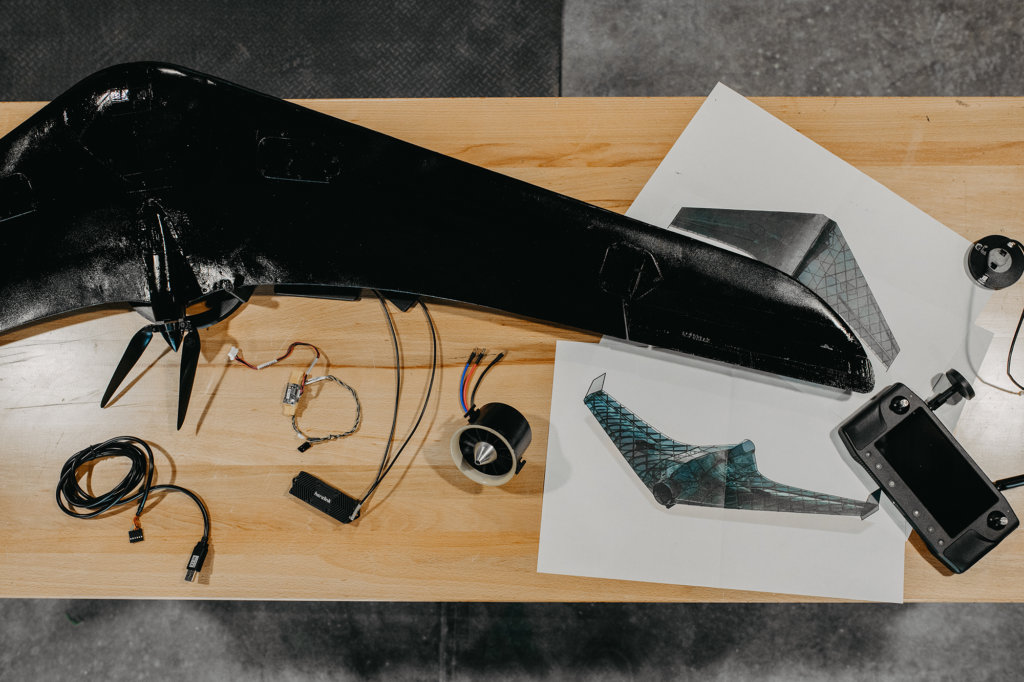 Eventually, after some help from his co-workers and a strong focus on what he wanted, Patel learned English well enough to take drive-through orders. Patel was determined to take what most people would deem a temporary, not ideal situation and leverage it into opportunity.
Eventually, after some help from his co-workers and a strong focus on what he wanted, Patel learned English well enough to take drive-through orders. Patel was determined to take what most people would deem a temporary, not ideal situation and leverage it into opportunity.
“I wanted to take orders and talk to people,” says Patel, “because I wanted to achieve something at Dairy Queen. I wasn’t just cleaning; I also talked to people and learned English to move forward in life. I started copying co-workers and what they were saying. I would write down what they said and take orders in the drive-through. Eventually, I spoke well enough that I was able to take orders at the front of the store.”
“I was much more into learning the technology. I would break open things and see how they worked.
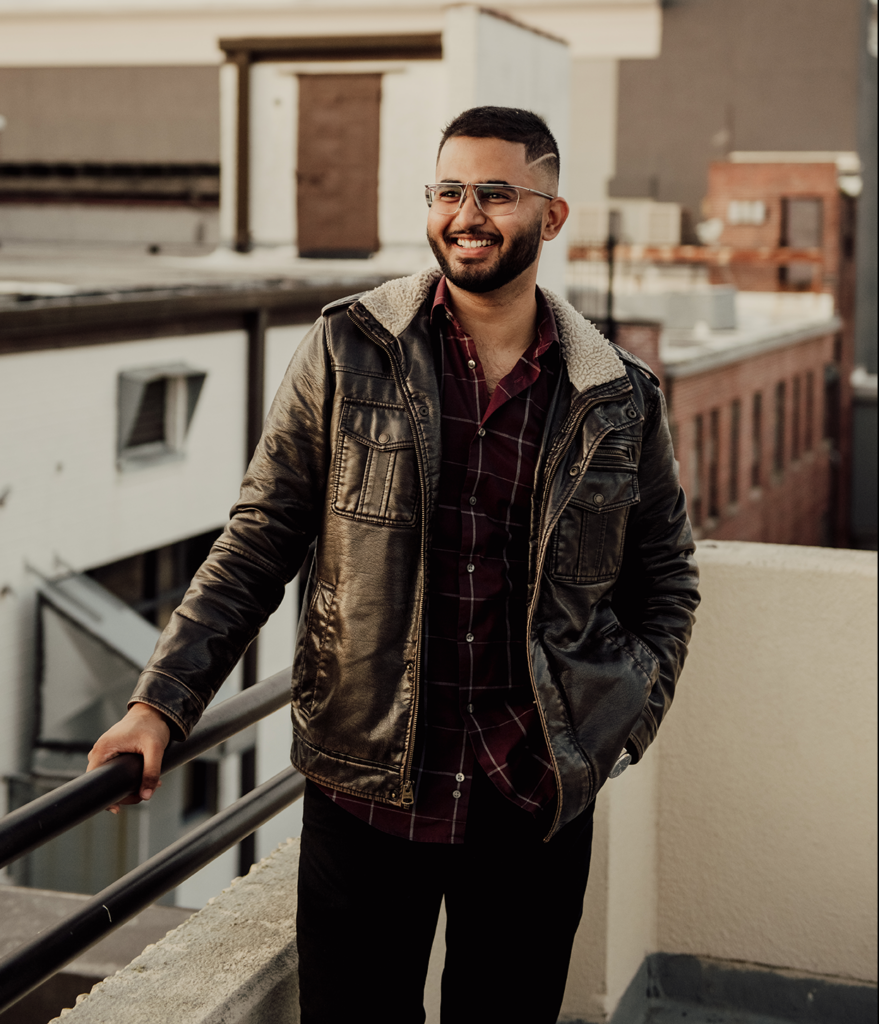 Patel started taking ESL (English second language) at Polk State College, but he dropped out after only a month of classes. “I did one month of ESL and quickly realized I was learning way more at Dairy Queen than in class. At that point, the classes were stopping me from making money, so I quit the classes.”
Patel started taking ESL (English second language) at Polk State College, but he dropped out after only a month of classes. “I did one month of ESL and quickly realized I was learning way more at Dairy Queen than in class. At that point, the classes were stopping me from making money, so I quit the classes.”
In fact, school was never really Patel’s thing. “I failed engineering school when I was in India. And not just engineering, but pretty much every exam since the sixth grade. I didn’t care enough to open a book. I wanted to be an engineer without studying it in school, so I figured out how to do just that.
Voyager Inc, Patel’s Lakeland-based tech company, is an engineering company that uses drones and artificial intelligence to create solutions for energy, agriculture, and infrastructure industries. Voyager has grown significantly in the last four years since Patel started in 2017. Today, Voyager Inc. has a handful of full-time employees and contracts in 25 different states throughout the country. But the groundwork for Voyager Inc was laid by Patel years ago, all the way back home in India.
Before immigrating to America, Patel attended engineering school and failed every subject. Patel wasn’t failing in school because he wasn’t smart but because he would rather study through hands-on experiences instead of sitting around doing book-work. “I was much more into learning the technology. I would break open things and see how they worked.
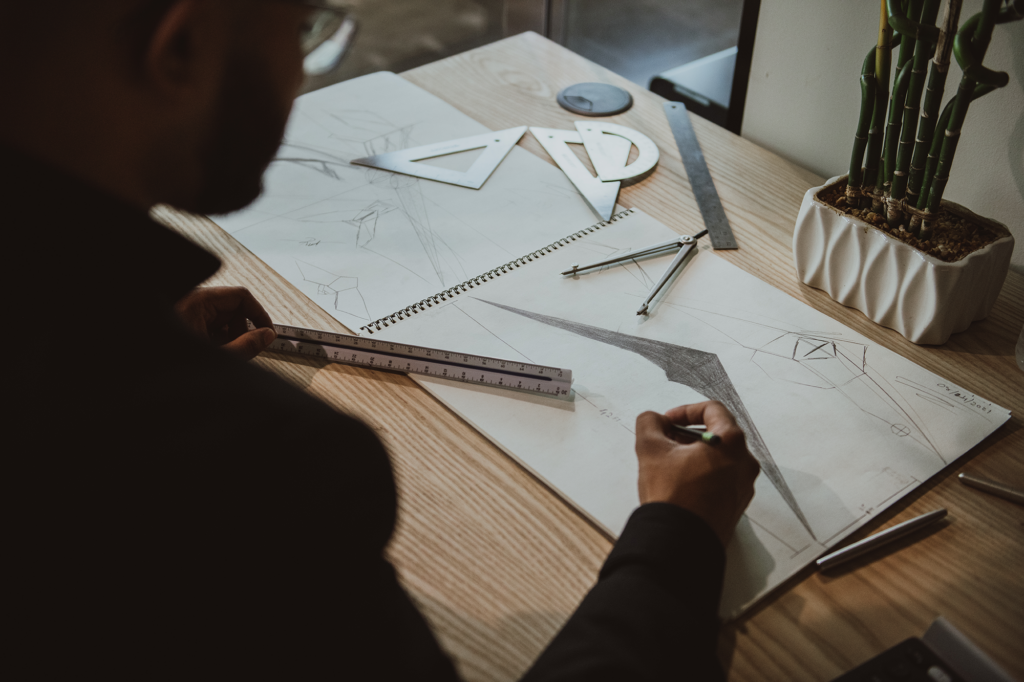
Voyager is on a mission to solve engineering problems and create solutions that protect our planet.
“I’ve always been fascinated with things that can fly. I’ve always been into technology,” says Patel. I would crack open things and see how they work. And I’ve always been fascinated with something that can fly.
While in India, Patel made a drone by collecting different parts, and soon after, he was elected as one of India’s top 40 innovators. Once Patel’s visa was approved, he left everything behind. During his time at Dairy Queen, his goal was to save money and build another drone. Two years later, he reached his goal and launched his business.
Voyager Inc uses drones to collect, process, and analyze data in real-time. Some examples include using drones to inspect powerlines. This method reduces safety risks and increases the speed and accuracy of the results. Voyager is doing years of work in only a month and gives 60% more data to the companies they work with.
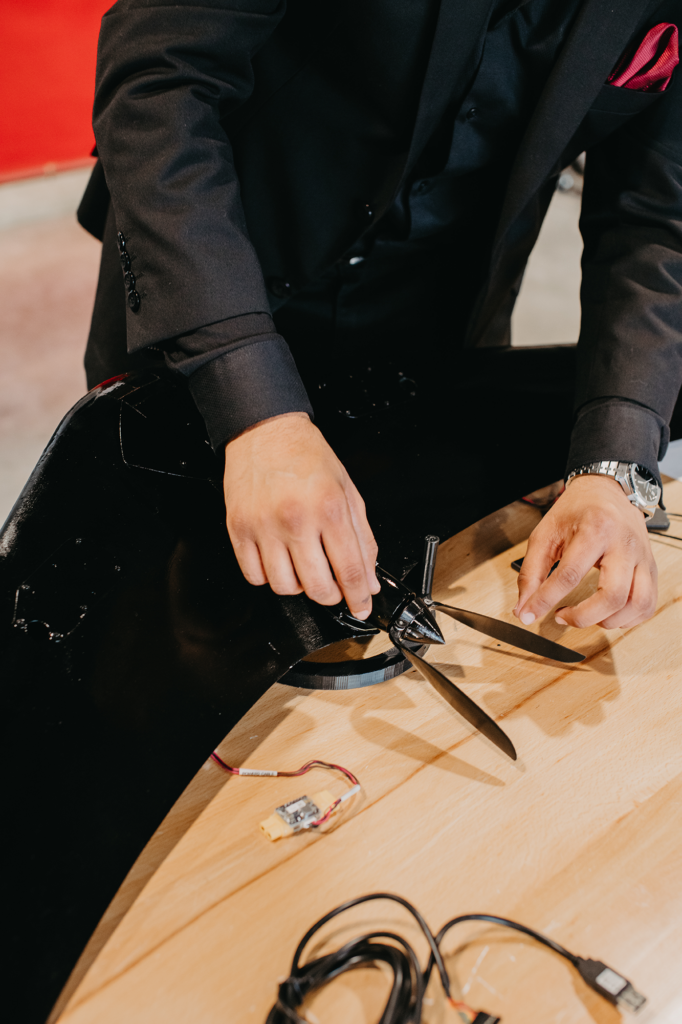 “Let’s say you’re a farmer and you own a blueberry farm in South Florida,” says Patel. “You’re spending $100,000 in fertilizer every year, which is a lot. I come in, and I say, “Hey, you are spending $100,000 in fertilizer because you’re spraying all over the farm.” So we’ll come to your site, and we’ll use our drones, our AI, and our sensors to collect data. And our data will give you specific information, so you’re not spraying all over the farm. You’ll be able to see exactly where you need to spray and how much you need to spray. It will save you hundreds of thousands of dollars each year just by using the data we collect. That’s what we do.”
“Let’s say you’re a farmer and you own a blueberry farm in South Florida,” says Patel. “You’re spending $100,000 in fertilizer every year, which is a lot. I come in, and I say, “Hey, you are spending $100,000 in fertilizer because you’re spraying all over the farm.” So we’ll come to your site, and we’ll use our drones, our AI, and our sensors to collect data. And our data will give you specific information, so you’re not spraying all over the farm. You’ll be able to see exactly where you need to spray and how much you need to spray. It will save you hundreds of thousands of dollars each year just by using the data we collect. That’s what we do.”
Simply put, Voyager is in the problem-solving business. “If the technology does not exist, we create it to solve a company’s problem. That’s what Voyager does,” says Patel. One of the ways Voyager Inc solves its problems is by creating its technology and building its drones.
“We are planning on moving Voyager into an American-based manufacturing company. That’s where I want to take Voyager- to create specialty drones that solve specific kinds of problems. The Drone we are working on right now is a drone that goes 250 miles per hour and is intended to fly only once. For example, if you want to penetrate a hurricane, it only flies once, and then it crashes. But before it crashes, it gives you all of the data that you need about it. That’s what we are working towards at Voyager.”
Patel also notes that the current laws don’t even permit a drone to fly as fast as the one they are developing at Voyager, which would be unprecedented in drone technology and capabilities. The fastest Drone in the world is currently the DRL Racer X and has only reached 179.78 miles per hour. “It’s not legal to fly a drone that fast,” says Patel. “The law is 100 miles per hour. But we are innovating beyond the rules right now. I care about the rules, don’t get me wrong. But I don’t care about them when it comes to innovation. The rules will always catch up with innovation.”
“I want to be the leader that leads the way in this industry. I want to solve problems and show everyone that there are other ways to do things and new ways to solve old problems.”
Innovation has been a part of Patel’s story from the beginning. Knowing that he wasn’t keen on school or studying, he knew he would have to innovate and do his own thing if he wanted to succeed. Patel, simply put, realized his future was in his own hands. “I have always been told my entire life that I’m not going to do anything because I failed my exams, and that’s how the world judges you. Whenever I failed an exam, that’s when I would say to myself, “It’s okay that you failed. I know you’re not dumb. I know you can do this.” So I decided to start my own engineering company.”
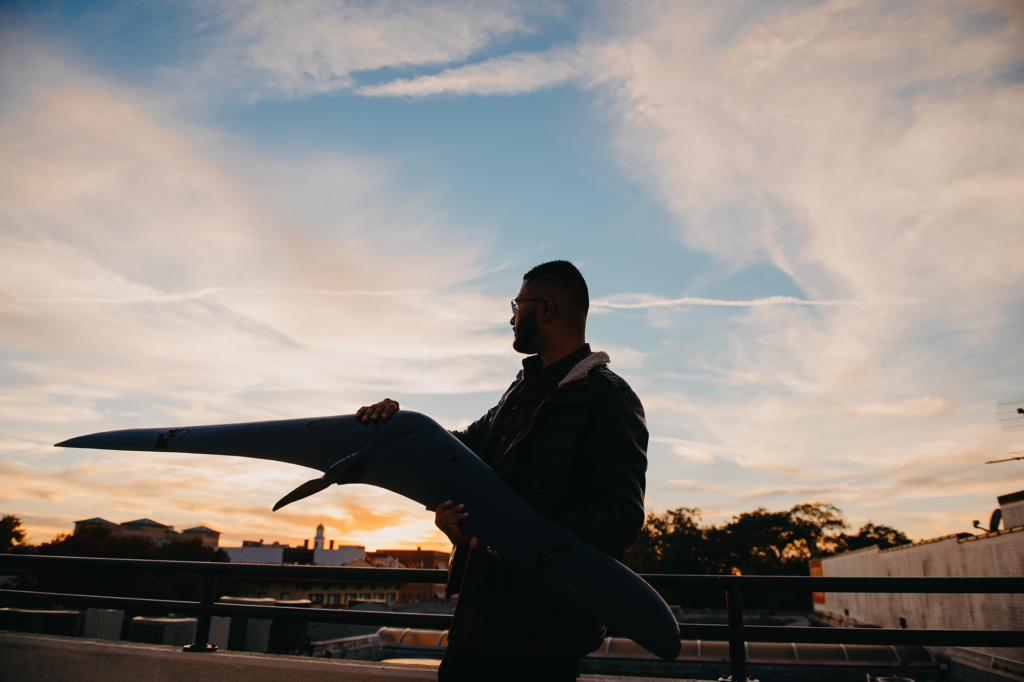 As grand as all of the ambitions might be for Voyager Inc, Patel still sees Lakeland as the perfect home away from home (his first home, of course, being India). “I work all over America, but I always come back to Lakeland. Because people are amazing in Lakeland, I could not move away.”
As grand as all of the ambitions might be for Voyager Inc, Patel still sees Lakeland as the perfect home away from home (his first home, of course, being India). “I work all over America, but I always come back to Lakeland. Because people are amazing in Lakeland, I could not move away.”
So while it seems like Patel and Voyager Inc will stick around in Lakeland for the foreseeable future, they will certainly continue to innovate and push boundaries in the energy, agriculture, and infrastructure industries. “I don’t want to just be an influencer in this industry,” says Patel. “I want to be the leader that leads the way in this industry. I want to solve problems and show everyone that there are other ways to do things and new ways to solve old problems.”
Voyager Inc.
502 E Main St. Lakeland, FL voyagerind.com
